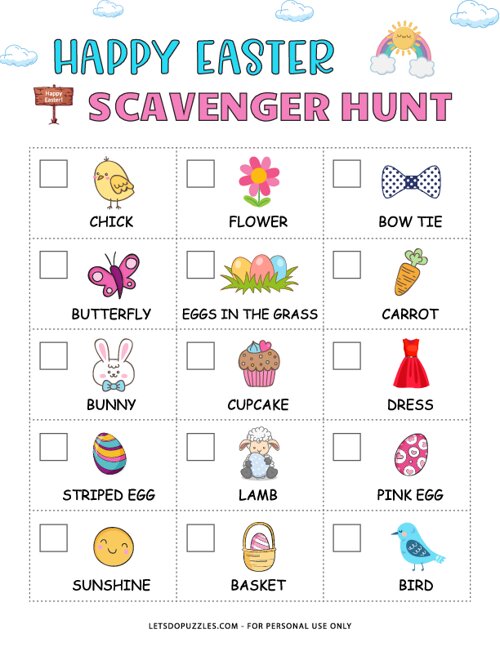Learn Why the Easter Egg Search Is Famous All Over The World and Its Significance
The Easter egg hunt, a cherished practice across various societies, embodies deeper significances that prolong beyond plain festivity. Rooted in historical practices, this activity signifies themes of renewal and renewal, resonating with the arrival of springtime and the resurrection of Jesus Christ. As we check out the diverse cultural adaptations-- from intricate egg decorating in Germany to the distinct Easter Bilby in Australia-- the importance of this custom ends up being progressively apparent. The evolution of the Easter egg quest in contemporary society elevates concerns regarding its future significance and effect on community involvement. What might this imply for generations ahead?

Historical Origins of Easter Egg Hunts
The tradition of Easter egg hunts has deep historical roots that intertwine with numerous social and spiritual methods. Originating in Europe, particularly amongst Christians, the egg signifies regeneration, rebirth, and brand-new life, lining up flawlessly with the themes of Easter. When eggs were usually decorated and offered as presents throughout the Easter period, the practice can be mapped back to the 13th century. By the 16th century, these eggs were frequently concealed for youngsters to find, changing the ritual right into a playful task.
Additionally, pre-Christian spring celebrations featured eggs as signs of fertility and renewal, mirroring the seasonal cycle of life. Over time, the merging of these customs resulted in the modern egg search, where vivid, usually candy-filled eggs are hidden for youngsters to find, advertising community bonding and domestic pleasure.

Cultural Variants Throughout the World
Although rooted in Christian practice, Easter egg hunts have actually adjusted and transformed, mirroring varied cultural methods worldwide. In the USA, youngsters excitedly look for candy-filled eggs hidden in parks and gardens, often accompanied by cheery events. This lively event emphasizes neighborhood and household bonding during the springtime period.
In contrast, in Germany, the custom usually includes elaborate egg designing, where family members repaint and decorate eggs before concealing them for children to discover. The German personalized additionally consists of the "Osterhase," or Easter hare, which brings eggs, including a special spin to the search.
In Australia, the Easter Bilby has taken precedence over the Easter Bunny, advertising awareness for this endangered types. Consequently, Australian egg hunts might include bilby-themed activities, highlighting a commitment to ecological preservation.

Importance of Eggs in Easter Traditions
Eggs act as a powerful icon of brand-new life and rebirth in Easter customs, embodying the significance of springtime and renewal. This meaning is deeply rooted in various cultural and religious contexts, specifically within Christianity, where the egg stands for the resurrection why not find out more of Jesus Christ. Easter Scavenger Hunt Ideas. The hard covering of the egg represents the covered burial place, while the emerging life within represents the hope of rebirth and everlasting life
Historically, eggs have actually been connected with fertility and rejuvenation across numerous people, pre-dating Christian more info here symbolism. In ancient cultures, eggs were commonly dyed and enhanced as component of spring events, standing for the renewal of nature. The method of egg decorating has actually advanced, with detailed designs and vibrant shades that additionally enhance their value throughout Easter.
In enhancement to their spiritual ramifications, eggs are also linked to the themes of sacrifice and redemption. The act of sharing enhanced eggs amongst friends and family functions as a reminder of the wealth of life and the happiness of public events. Hence, the egg remains a main concept throughout Easter celebrations, enveloping the extensive themes of hope, revival, and the intermittent nature of life.
Neighborhood and Household Involvement
Easter parties cultivate a feeling of area and family engagement, bringing together people from various histories to partake in common customs. The Easter egg quest, in specific, works as a comprehensive activity that motivates involvement from any ages, reinforcing social bonds and communal connections. Family members usually collaborate to get ready for these events, creating possibilities for interaction and much deeper connections.
Neighborhoods regularly organize massive pursues that draw in participants past instant families, hence advertising social cohesion. Local companies and companies usually sponsor these events, improving community look at here now spirit and sustaining neighborhood economic climates. The act of gathering to hunt for eggs not only cultivates a festive environment but also encourages the sharing of stories and traditions that span generations.
Furthermore, these events promote a sense of belonging, as individuals join with a common objective. Taking part in such tasks can instill a sense of satisfaction in one's neighborhood, while likewise commemorating social variety. The Easter egg quest transcends mere amusement; it works as an important mechanism for community-building and family members involvement, strengthening the importance of togetherness in an increasingly fragmented world.
Modern-Day Celebrations and Practices
Recently, many areas have welcomed innovative techniques to Easter events, advancing typical methods right into modern-day festivities. This evolution is defined by a blend of modern patterns and cultural influences, making Easter much more easily accessible and engaging for diverse populations.
One prominent trend is the consolidation of technology into Easter egg hunts. Many areas currently use apps that improve the experience by giving hints and monitoring participants in real-time. This modern-day twist not just brings in tech-savvy families however also cultivates a sense of competition and excitement.
Additionally, themed egg hunts have gained appeal, usually aligning with local passions or current events. Environmentally friendly egg pursues highlight sustainability, utilizing naturally degradable products and motivating individuals to reduce waste. This reflects an expanding recognition of ecological problems within community parties
Additionally, online parties have arised, particularly in reaction to international events that limited gatherings. On-line systems enable family members to join online egg hunts and interactive tasks, making sure that the spirit of Easter lives, no matter of physical distance.
Conclusion
The Easter egg quest, with its origins in ancient customs and deep cultural value, serves as an effective sign of regeneration and revival. Inevitably, the enduring popularity of the Easter egg hunt highlights its relevance in contemporary culture.
The Easter egg quest, a treasured tradition across numerous cultures, embodies deeper meanings that expand past plain festivity. The evolution of the Easter egg search in contemporary culture elevates inquiries concerning its future relevance and influence on neighborhood interaction.The practice of Easter egg pursues has deep historic origins that link with different social and spiritual techniques.Although rooted in Christian tradition, Easter egg pursues have adjusted and changed, showing varied social techniques around the globe.The Easter egg hunt, with its origins in old customs and deep social significance, offers as a powerful sign of rejuvenation and revival.